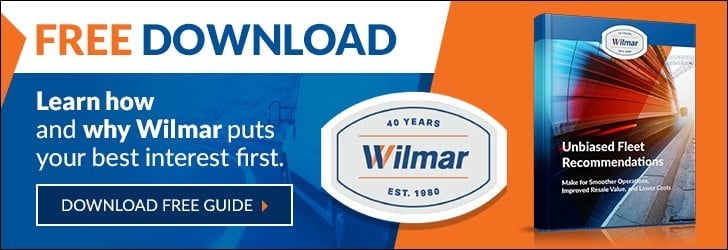
Many individuals and businesses alike decide to invest in purchasing vehicles to keep their personal and professional lives rolling.
While there are several advantages to buying a vehicle outright, it does come at a steep cost. According to Edmunds, the average car payment in the United States is $554 per month - not an amount to sneeze at by any means!
Instead of paying such high costs each month, many companies decide to go with an alternative option: leasing a car, a truck, or a fleet of cars or trucks.
The following information will discuss what a lease is, what's involved with a lease, and why a business may decide to go with the leasing option.
What is a Lease?
When a person buys a new car, they have to either pay the entire price of the vehicle with cash, or (more frequently) pay on a month-by-month basis according to a payment plan. As an example, if a car's price tag is $20,000, then the buyer would have to pay the full amount upfront, or pay a minimum monthly payment along with compounded interest.
On the other hand, a lease can be likened to a long-term car rental. In a lease arrangement, the lessee (that's you) pays the lessor (the company that provides the car) for the privilege to use the vehicle for a set period of time.
You would only have to pay the difference between the vehicle's initial price tag and its expected value at the end of the lease term. In other words, if a car is worth $20,000 at the start of the lease term, and is expected to depreciate to $1200 by the end of the lease term, then you would only have to pay $8,000 divided into however many months are in that period, plus interest and fees.
Because of this framework, leasing a car is generally less expensive on a month-to-month basis than buying a car outright. In fact, at the end of 2018 the average cost for leasing a car was $448 per month - in other words, monthly savings of $106!
Of course, the major drawback to a lease is that at the end of the lease term, you must return the car to the original dealership, or an authorized franchise dealer. Still, you then have the option to walk away and not look back, or run it back with a new lease. You could even trade in your leased vehicle!
Benefits of Leasing a Car
There are several benefits of leasing a car, both for individuals and for businesses. Some of these benefits include:
- Reliability. There's nothing worse than your vehicle breaking down when you have somewhere important to be. With a leased vehicle, that is less likely to occur than with an older car that was purchased outright, since the leased vehicle is typically newer, and should have been well-maintained by the dealer prior to the lease. This is especially important for businesses that rely on their fleet vehicles to transport them to and from important sites without any extra hassle.
- Low maintenance costs. Leased vehicles generally don't cost a lot with regards to maintenance. If they are regularly serviced, then they will often last the duration of the lease term without a single major mechanical problem.
- Affordable monthly payments. As discussed above, monthly lease payments are almost always less expensive than regular car payments. This is a big draw for individuals that operate within a fairly strict monthly budget, as well as businesses that need to maintain a predictable, steady cash flow to stay profitable.
If your business is in the market for leasing a car, or a fleet of cars, then be sure to check out Wilmar, Inc., the industry leader in fleet management solutions.





